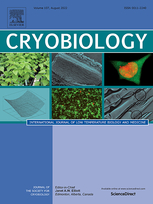
Current techniques and the future of lung preservation.
Author(s) : LAUTNER L. J., FREED D. H., NAGENDRAN J., ACKER J. P.
Type of article: Periodical article, Review
Summary
Although lung transplant remains the only option for patients suffering from end-stage lung failure, donor supply is insufficient to meet demand. Static cold preservation is the most common method to preserve lungs in transport to the recipient; however, this method does not improve lung quality and only allows for 8 h of storage. This results in lungs which become available for donation but cannot be used due to failure to meet physiologic criteria or an inability to store them for a sufficient time to find a suitable recipient. Therefore, lungs lost due to failure to meet physiological or compatibility criteria may be mitigated through preservation methods which improve lung function and storage durations. Ex situ lung perfusion (ESLP) is a recently developed method which allows for longer storage times and has been demonstrated to improve lung function such that rejected lungs can be accepted for donation. Although greater use of ESLP will help to improve donor lung utilization, the ability to cryopreserve lungs would allow for organ banking to better utilize donor lungs. However, lung cryopreservation research remains underrepresented in the literature despite its unique advantages for cryopreservation over other organs. Therefore, this review will discuss the current techniques for lung preservation, static cold preservation and ESLP, and provide a review of the cryopreservation challenges and advantages unique to lungs.
Available documents
Format PDF
Pages: 8 p.
Available
Free
Details
- Original title: Current techniques and the future of lung preservation.
- Record ID : 30030128
- Languages: English
- Subject: Technology
- Source: Cryobiology - vol. 94
- Publication date: 2020/06
- DOI: http://dx.doi.org/10.1016/j.cryobiol.2020.04.009
Links
See the source
-
Effects of trehalose and fetal bovine serum on ...
- Author(s) : WANG M., LIANG W., YE P., et al.
- Date : 2017/10
- Languages : Chinese
- Source: Journal of Refrigeration - vol. 38 - n. 5
- Formats : PDF
View record
-
Cryopreservation of Mediterranean fruit fly emb...
- Author(s) : RAJAMOHAN A., LEOPOLD R. A., WANG W. B., et al.
- Date : 2003/03
- Languages : English
- Source: CryoLetters - vol. 24 - n. 2
View record
-
Cryopreservation of human sperm using rapid coo...
- Author(s) : GRISCHENKO V. I., DUNAEVSKAYA A. V., BABENKO V. I.
- Date : 2003/03
- Languages : English
- Source: CryoLetters - vol. 24 - n. 2
View record
-
Cryopreservation of ovules and somatic embryos ...
- Author(s) : GONZÁLEZ ARNAO M. T., JUÁREZ J., ORTEGA C., et al.
- Date : 2003/03
- Languages : English
- Source: CryoLetters - vol. 24 - n. 2
View record
-
Cryopreservation of Arachis species by vitrific...
- Author(s) : GAGLIARDI R. F., PACHECO G. P., CARNEIRO L. A., et al.
- Date : 2003/03
- Languages : English
- Source: CryoLetters - vol. 24 - n. 2
View record
